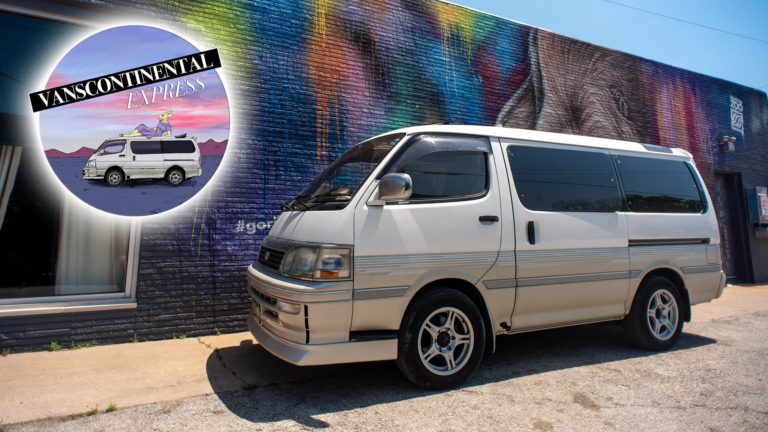
Even a nomad needs a home. Mine just has JDM charm and all-wheel drive.

This is a 1995 Toyota Hiace 3.0 Turbo Diesel AWD Super Custom. It is also my new home. In the wreckage from my old life, I’ve realized while I am fortunate enough to have a place to stay and rest my head and have my cat taken care of, I won’t have many things outside of this new vehicle. Rent for even a minimalistic studio is expensive, and the constraints of living with a friend who can watch my cat dictate that most of my possessions need to go into storage. I am committing as hard as I can to the nomadic life, partly out of choice, but mostly out of necessity.
To be fair, I could do worse than this for a house. This van has a fold-out bed, a high ceiling, four sunroofs, buckets of torque, relatively low mileage, and electric privacy curtains. It’s comfortable and seats eight. I got it for quite a good deal from a friend of mine that imports classic Japanese cars, which meant all the paperwork from importation was handled; I slapped a temp tag on it and signed a few documents and was ready to go.
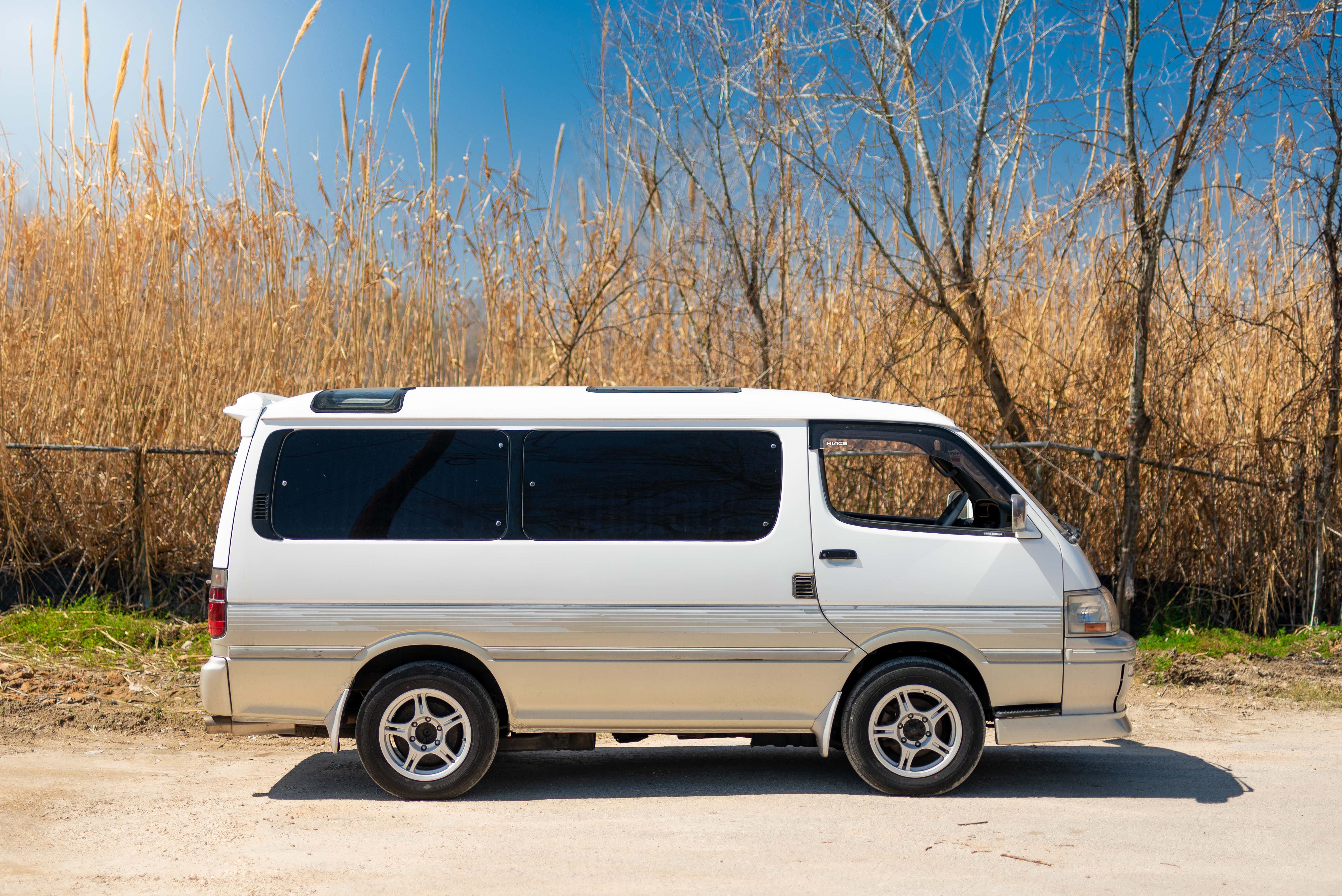
[Editor’s note: Writer Victoria Scott is taking off to travel the country this summer and explore car culture in a JDM 1995 Toyota Hiace, and we’ll be chronicling her adventures through a series on The Drive called The Vanscontinental Express. It’s natural to yearn for the open road at a moment when it feels like the world is waking up from a yearlong daze. But as a trans woman looking for her place in the world, Victoria’s journey is anything but your average road trip. We are honored to publish her story. This is part two; you can read part one here.]
It’s actually fun to drive. It fulfills the child inside that grew up wanting to drive the school bus; it bounds over bumps with a pleasant squish of the stock suspension and soft, upright seats. The cabover design means the steering happens directly under the driver, which just adds to the fun little bus experience. It’s plenty powerful to merge on American highways, and it does 65 mph without a single complaint. I’ve had relatively few chances to put the all-wheel drive to the test, but when I have, it climbs loose terrain like a mountain goat. The naturally airy cabin means A/C can be reserved for the hottest of deserts. With the windows open and the sunroofs cracked, it feels like driving a pleasant ocean breeze on wheels. Unlike the Supra I recently reviewed, this van adores fresh air.
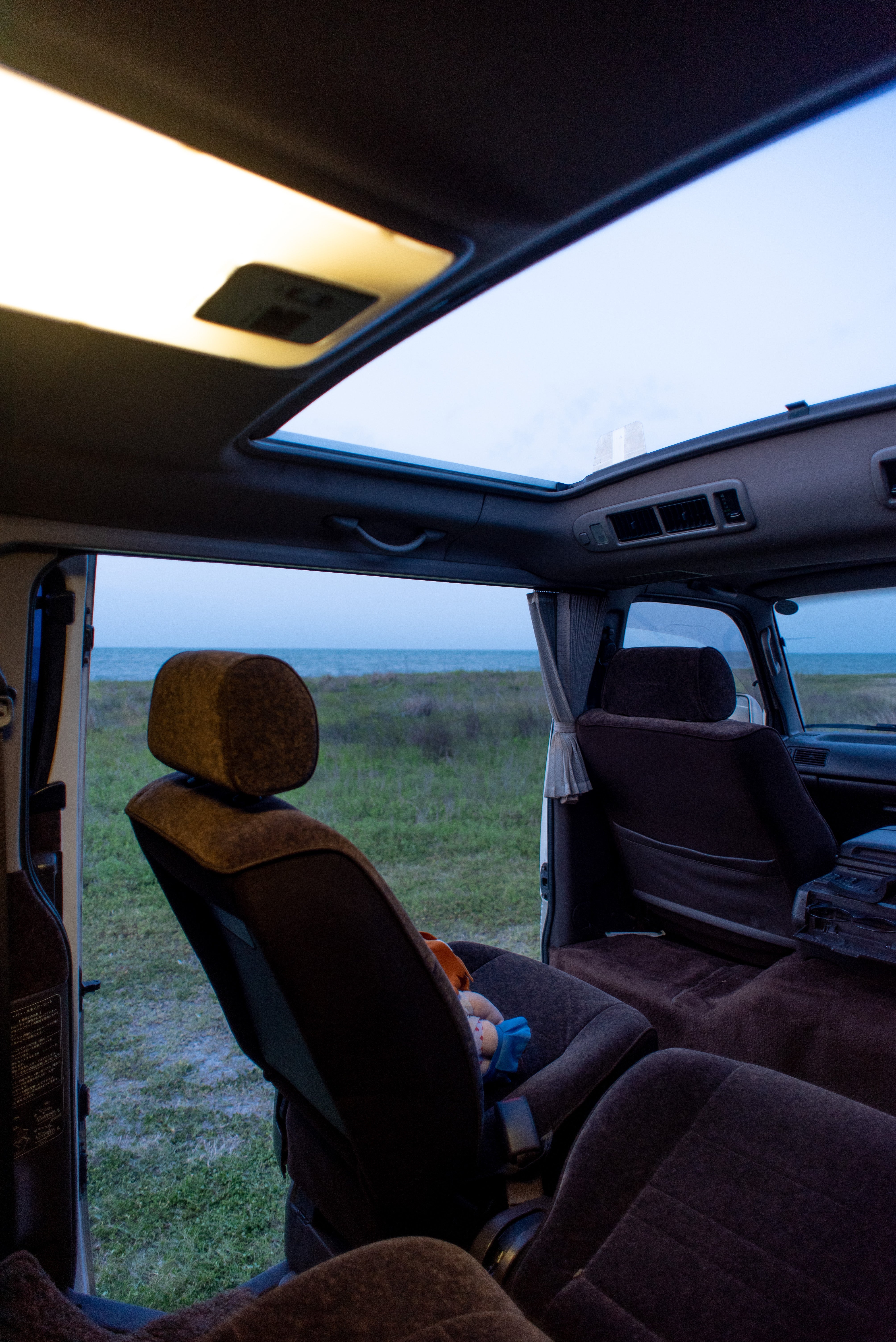
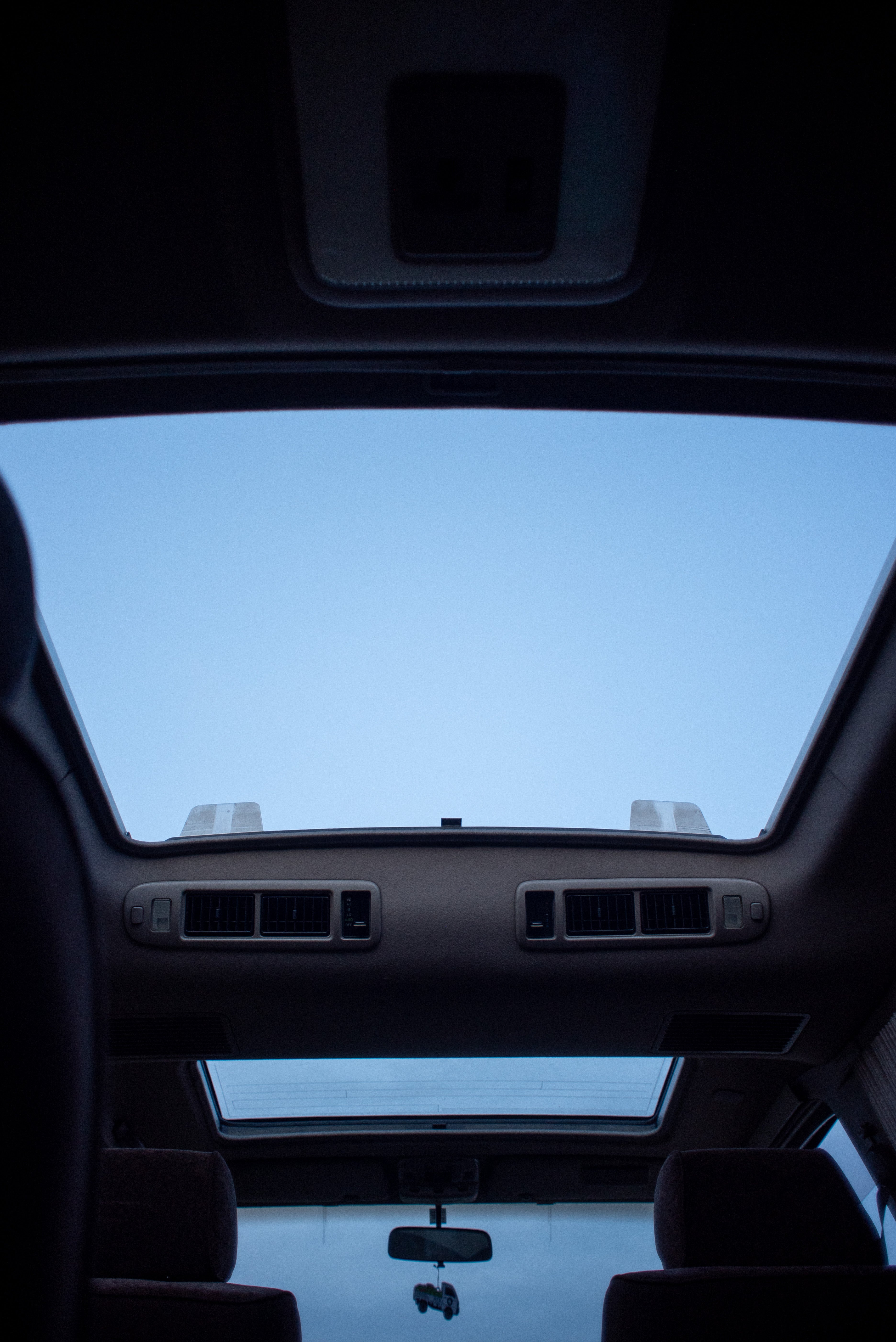
To get it fully trip-ready, I outfitted it with some inexpensive bins in which to store toiletries, clothes, and coffee supplies. I installed a bargain-basement Bluetooth head unit and a foam mattress topper to put on the bed (which the Super Custom comes equipped with, thanks to its folding and rotating rear rows of seats that lie flat and flush with each other). Some personal effects—Hot Wheels cars in the cabin, a pink floral comforter, a minature makeshift makeup stand—gave it a personal feel.
Final touches included a power inverter to charge my laptop, mosquito netting for the massive sunroof, and a battery-powered fan for warm nights. It was the least work I’ve ever needed to do to make a living space habitable for me; this thing feels meant to be lived out of. The best part of this whole transformation is I finally can say I own my home. The American dream is dead for my generation unless you don’t mind calling a right-hand drive Toyota your abode, and honestly, I’ll take it.
It also arrives in my life amid a troubled atmosphere that seems to demand a sturdy home. On top of the aforementioned breakup, the uneasiness from reintegrating into society at large, and the plan of driving into the vast unknown of the American West completely solo, the world locked down with me as a guy and it is reopening with me as a woman.
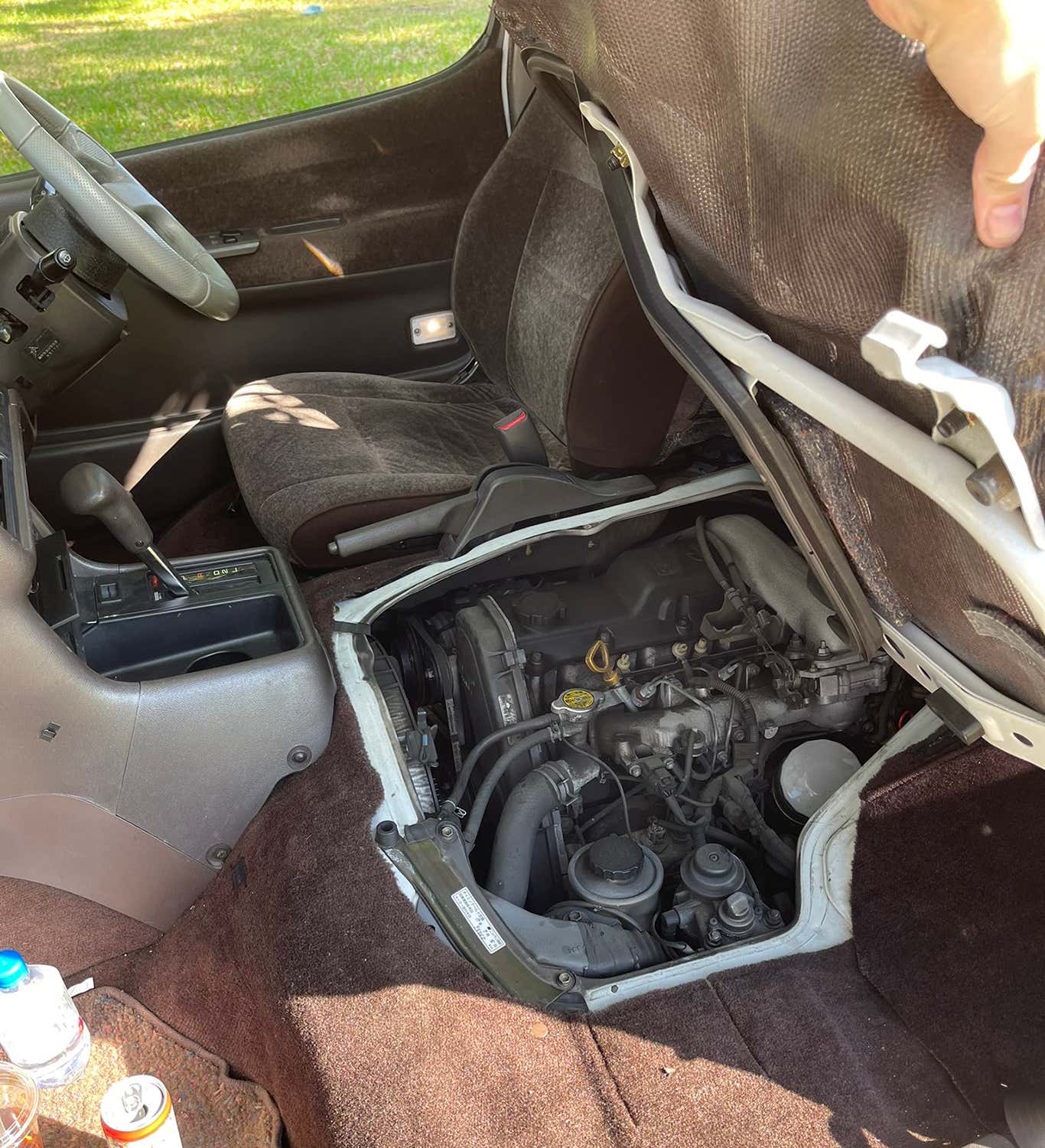
This is a difficult experience regardless of circumstances, but the climate right now is tense for trans people. Thirty-three states currently have legislation on the table to revoke our rights in some shape or form; it appears we are the wedge-issue of the 2020s now that gay marriage has finally proven a losing battle for conservatives. I am extremely lucky to have supportive friends to see and talk to and to have the platform for my work that I do, but it’s difficult to look forward to emerging from the chrysalis of transition when roughly half the country finds your very existence objectionable.
And so with this tension I bought the van. It was love at first drive and I needed to give myself the motivation to push forward. It would be so easy to have written part one of this story, chalked it up to a silly dream, and moved into a studio apartment to for another time. Looking at the van sitting in the driveway is a 3,000-pound reminder for me that even if it is a silly dream, now is going to be the time I chase it.
This motor—the 3.0-liter, four-cylinder turbocharged diesel 1KZTE—is shared with the Land Cruiser Prado and Hilux, vehicles that have been tested in the most extreme conditions on Earth through actual warfare. I don’t intend to drive through any active conflict zones, but given the state of the country, it’s nice to know it would probably handle things fine. I didn’t expect the motor’s clatter under my seat to give me confidence. The van and its turbodiesel heart change nothing about the political climate I set off into, but they inspire resilience within me to know even when I’m alone, I can rely on it.
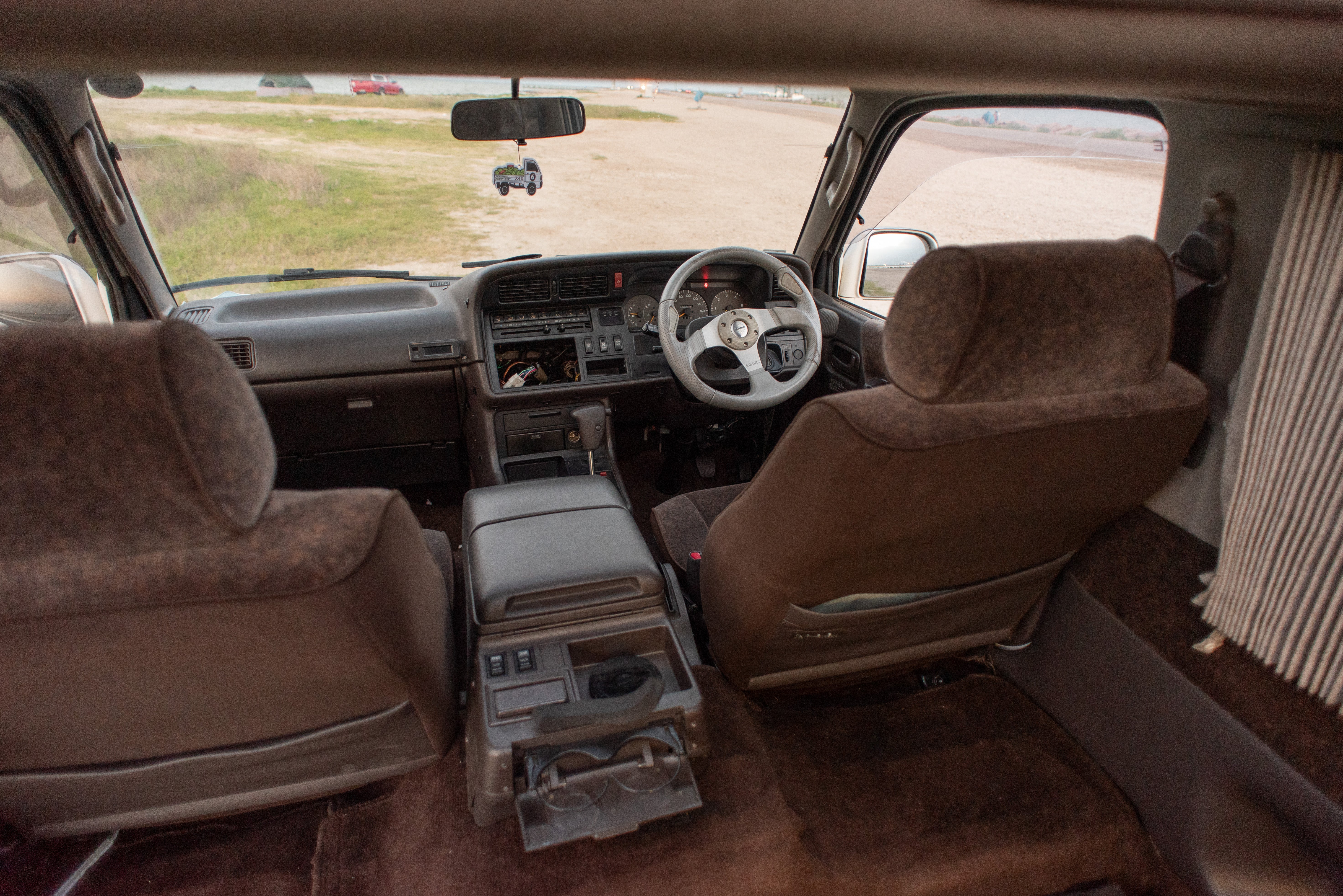
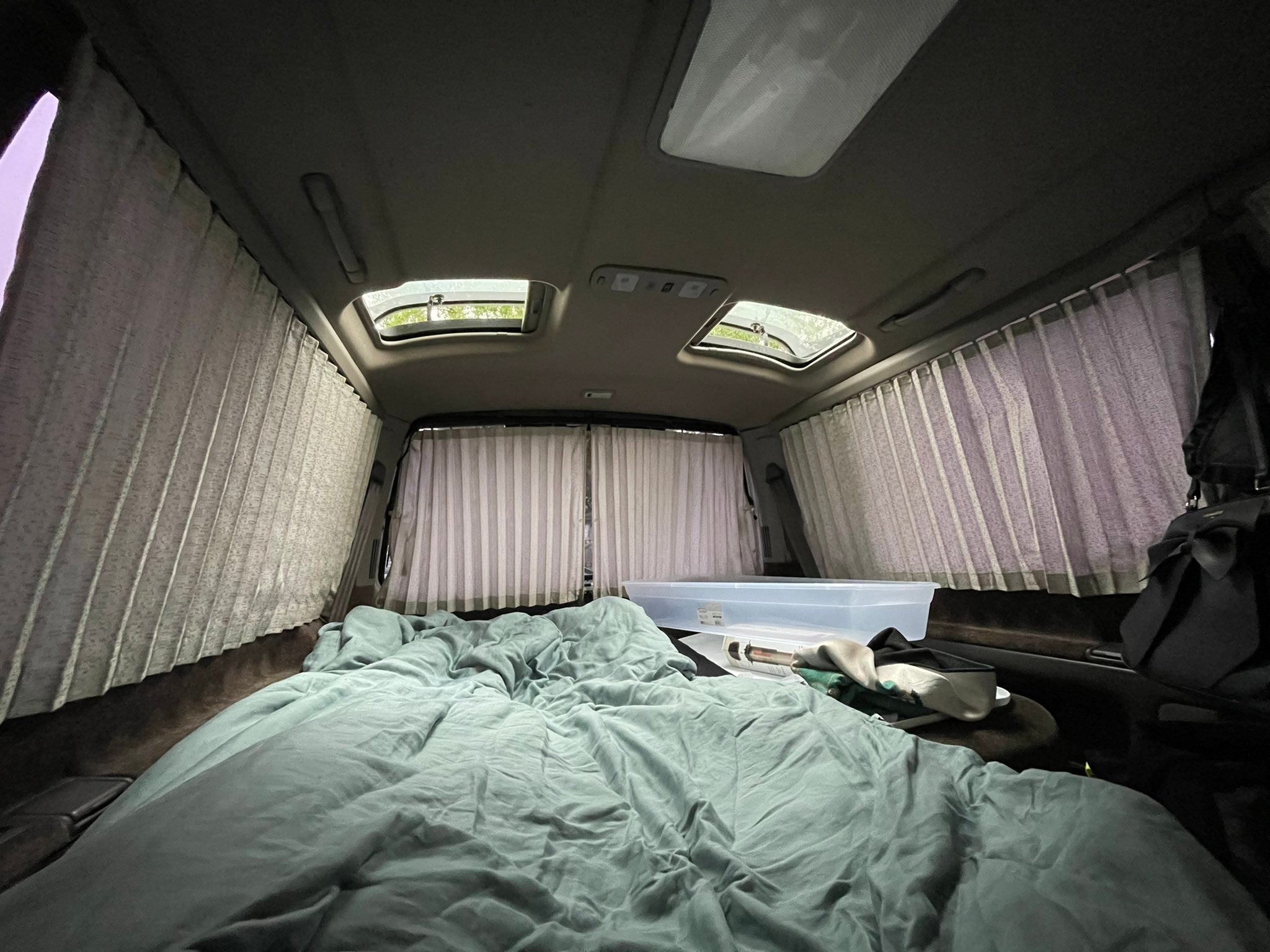
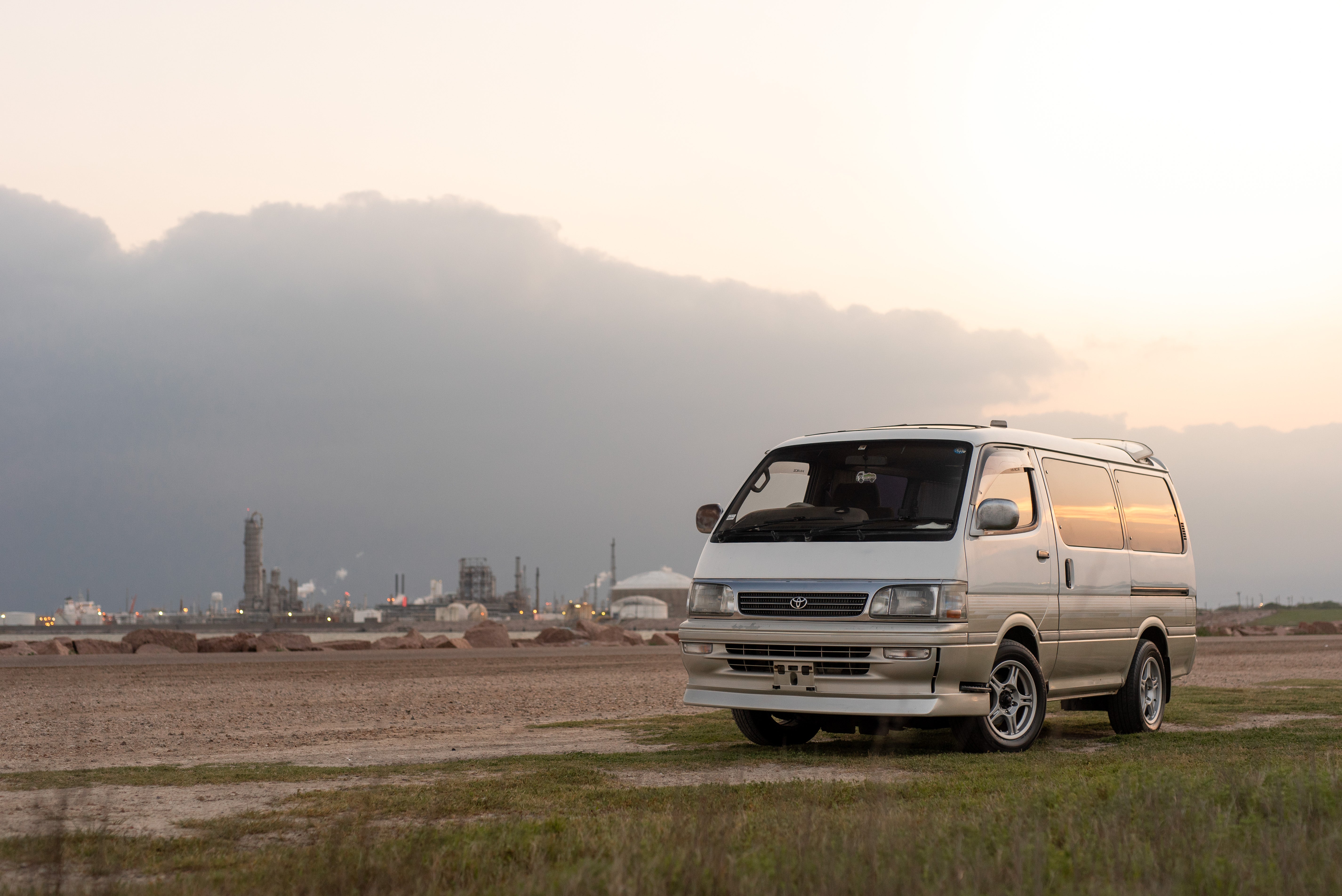
And the Hiace defuses situations I might otherwise find tense, too. Realistically, I’ve been on hormones for only a little less than a year. I’m very tall and I was cursed with a voice on the deeper side, which I cannot control. I have purple hair and an absurd sense of fashion, which I can control. I would stand out even if I tried to blend in, so I have embraced it as much as I know how. It feels empowering to me to accept my differences and enjoy them. It also does mean sometimes I attract a bit more attention from people I’d prefer not to notice me, however.
Similarly, the Hiace clearly stands out as something different and embraces it in the same way I have tried to. It is right-hand drive. It has an adorable, rounded appearance and suggests the slightest bit of sportiness with its wing and front splitter. Its silhouette is unmistakably Japanese; there is nothing like it on American roads.
And so when I roll up to places unknown for diesel or a bathroom break (a tense undertaking), the van deflects the initial attention from me. Onlookers who might otherwise gawk at me personally are distracted by the van, as it is immediately disarming. It gives people who otherwise might not want to give me a chance something else to talk about first and break the ice.
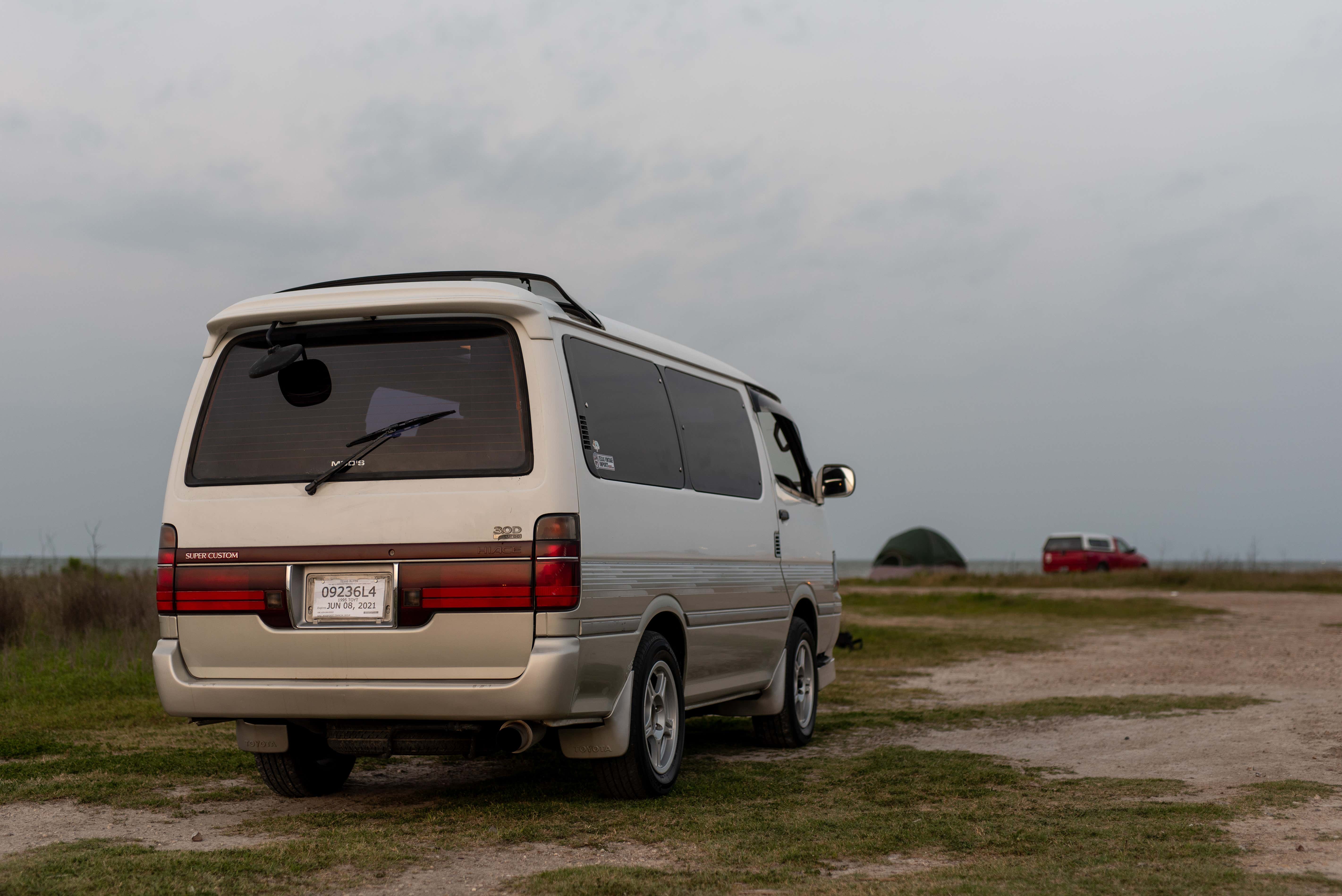
These are all happy byproducts of buying something I genuinely love, mind you. I wasn’t expecting this van to make the trip itself easier. I did cross-shop it with mundane used Odysseys and Econolines, figuring I could save money or headaches with a gently worn USDM car I could convert into something livable. The process wasn’t actually as economical as I’d expected, though, and it seemed like a waste of a purchase to buy something bland. I figure most cars are temporary in my life: They enter, fulfill a role for me, and then move on. But this is my home. I wanted to love it and be excited to drive it.
With this backdrop in mind, I christened the van Marsha. I am no longer someone who really names her cars, but I made an exception for my Hiace. You see, Marsha P. Johnson was a Black trans woman who is widely recognized as one of the queer people at the forefront of the Stonewall riots in 1969. The riots broke out over several days in New York City after police attempted to arrest the occupants of a gay bar (a common occurence at the time) and the community collectively decided they had finally had enough. Marsha emerged as one of many leaders of the burgeoning movement, and slowly, gay rights moved from a fringe topic to the mainstream.
The fact I can take this trip as myself and write in my true voice is thanks to the efforts of her and countless other queer people who struggled and fought against institutional power over generations before I was even born. I am not naming the van for her. I think that would be a disservice to her legacy. I am dedicating it and this trip to her memory; this is something I could never have done without brave people like her who fought for the rights I now cherish.
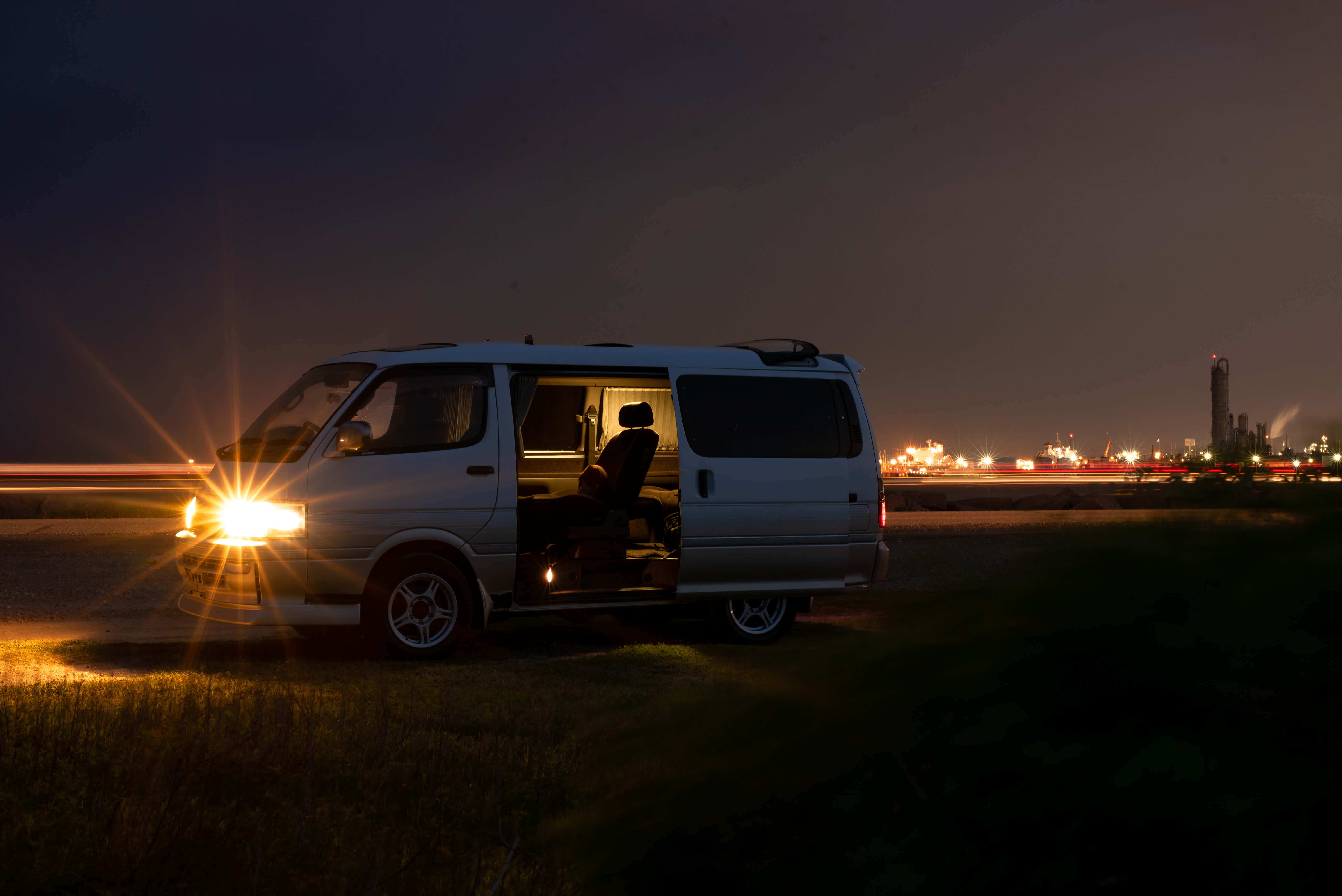
And so now, I look forward to the first journey in it. The all-important test run.
To put some miles on the van and reacquaint myself with life outside the four walls of my house, I am heading to North Carolina for a trip to see a close friend, see how it performs, and remind myself I can have fun out there. This is more than just a quick little jaunt; I’ll cover at least 2,000 miles, but in the grand scheme of the trip I have planned for later in the summer, this should be a good way to find out how the van—and I—will handle this great big country.
Got a tip? Email tips@thedrive.com.